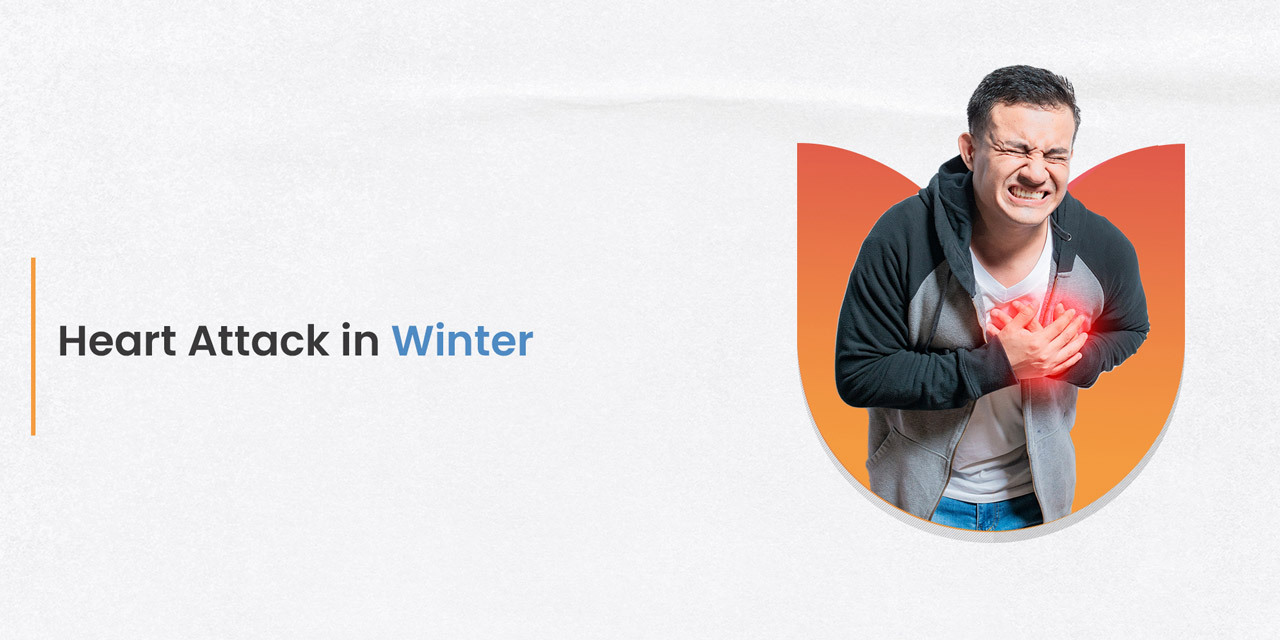Cardiovascular diseases and stroke are the leading cause of global mortality and principal contributor to disability. However, seasonal variations have been noted in losses caused due to cardiovascular diseases like heart attacks, both in the Northern and Southern hemispheres, with higher bereavement rates during the winter over the summer.
A heart attack occurs when blood flow to the heart is blocked. A rapid increase in demises due to heart attacks in winter is linked to multiple risk factors, some being temperatures, physical activity, and air pollution. The curious question is, why is there an increased probability of heart attack in winter?
Cause of Increased Heart Attack in Winter
There are several ways the cold affects how the body and brain function in the winter. Here are some biological effects during winter that may cause heart problems:
Constricted Blood Vessels
In the winter, the excess cold leaches more heat from the body, activating the body’s sympathetic nervous system. To stay warm and maintain a median body temperature, blood vessels contract or ‘vasoconstriction’. This constriction allows less blood to travel to the heart. Combined with pre-existing plaque buildup in the blood vessels, it can lead to a heart attack. Additional research also suggests that the fluctuations in temperature may make the plaque buildup larger and more unstable, which leads to a greater risk of heart attacks.
Higher Blood Pressure
The constriction of blood vessels leads to the heart working harder to pump blood, thus raising one’s blood pressure. Which, in turn, leads to an increased risk of heart attacks and strokes. Particularly if one has pre-existing high blood pressure. Along with chest pains or ‘angina’ due to coronary heart disease.
Behavioral Factors
Factors like increased physical activities in colder countries, like shoveling or walking through heavy snow, may also impact the risk of heart attacks. There is a negative impact on the heart due to the lack of exercise due to the cold outside. The stress hormone levels may increase due to the emotional stress of holidays., leading to heart attacks or strokes. Along with this, the stress steers one to opt for comfort foods, which may negatively impact heart health with the additional lack of exercise.
Sun Exposure
Studies also suggest an association between Vitamin D deficiency and heart problems. With the change in season, the Vitamin D intake varies. In addition, there is an increase during summers and spring and a decrease during autumn and winter.
An indirect factor affecting one’s cardiovascular health is air pollution, with chronic exposure leading to increased heart rate and blood pressure (and manifesting as chest pains).
Who is at Higher Risk?
Cardiovascular diseases are the leading causes of death among both women and men. Seasonal occurrences are higher in men, as opposed to women. However, menopause is often a time when women experience heart attacks. Older people, chronic smokers, drinkers, and physically inactive people are more prone to heart attacks.
What Can You Do?
1. Weather-appropriate Clothing – Wear adequate winter clothes with layers that keep one warm, protecting one from the cold weather. Essential clothing items here are hats, gloves, and sweaters.
2. Exercise as per Doctor’s Recommendation – Physical activity boosts immunity, keeps body heat regulated, and helps you operate in the cold. At the very least, it is recommended to do some light exercises, like stretches or walking. Annual check-ups are also recommended. One must also take frequent water breaks, as dehydration is bad for one’s health.
3. Avoid Smoking, Vaping, and Drinking – Along with caffeine, these substances affect one’s blood pressure. Quitting and limiting such substances boosts health, especially regarding one’s heart.
4. Shoveling – Refer to your doctor on how long to shovel for or if safe at all for you. If necessary, it’s practical to invest in a snow blower (particularly if you have a long driveway). Shoveling in steady, short intervals, with frequent breaks, is recommended. If you have a history of heart problems, consider passing the shoveling job to someone else.
5. Pre-existing Heart Troubles – If you have a history of or a diagnosed heart condition, it is recommended that you work on unwinding and de-stressing. Referring to a doctor can greatly help in finding out more about cardiovascular health.
Symptoms of Heart Attack
- Severe chest pain
- Heartburn-like sensation
- Cold sweat
- Dizziness
- Nausea or vomiting
- Pervading sense of doom
- Shortness of breath
- Numbness, pain, tingling, in jaws, back, neck or shoulders.
What to Do if you have a Heart Attack?
If you think you have a heart attack, here is a list of things to do.
- Call an ambulance immediately. Make sure to keep on the call with the emergency medical operators.
- While waiting, take an aspirin. It helps to keep your blood from clotting. If taken during a heart attack, it could substantially reduce heart damage.
- Begin CPR if the person is unconscious while you wait for medical help.

